The Jordan Engineers Association, through its Architectural Engineering Division, opened a new window on the future of Amman city by holding a workshop discussing the “Smart City Roadmap” project.
The workshop, sponsored by the Engineers Association President Abdullah Ghosha, emphasized that the shift towards smart cities has become a necessity to keep pace with rapid global changes, and that building a smart city means reshaping the relationship between the citizen and the city to be more efficient, sustainable, and capable of meeting its residents’ needs.
He added that a smart city does not only mean introducing technology into our daily lives but also means reshaping the relationship between the citizen and the city so that Amman becomes more responsive to its people’s needs and more efficient in managing its resources, with appreciation extended to the city of Amman and its administration.
Ghosha pointed out that the association, through its scientific and professional arms, has been and remains a key partner in shaping visions and plans that drive modernization and development in Jordan, contributing to building the future by providing expertise, consultations, studies, and initiatives that serve the nation and society.
He explained that the association has launched many initiatives intersecting with the concept of smart cities, whether in sustainable urban planning, environmental resource management, or employing digital solutions in engineering work. The association is keen to enhance cooperation with various national institutions, foremost among them the Greater Amman Municipality, to be a true partner in thinking, planning, and implementation. This is evident in the demand to develop building codes to align with global technological developments affecting buildings, especially regarding energy, sustainability, communication networks, and infrastructure that must be ready to reflect on Amman’s smart city with its rich history.
He affirmed that Amman deserves to be a smart city by global standards, using data and technology to improve quality of life. The main challenges it faces include transportation and traffic issues in Jordanian cities.
Ghosha noted that transportation and traffic issues are obstacles among many others to achieving a fully integrated smart city. He stressed that the smart city roadmap for Amman is not just a technology or theoretical document but a comprehensive vision based on sound urban planning, innovative architectural design, sustainable engineering, and good governance.
The association, through its specialized committees and engineering divisions, continues to work with all partners to provide studies and technical expertise supporting the Greater Amman Municipality in its future projects, as well as enhancing partnerships between the engineering sector and the public sector in designing and implementing smart solutions. It also supports scientific research and innovation in energy, transportation, sustainable architecture, and qualifying young engineering cadres to lead digital transformation projects.
Ghosha emphasized that the success of the smart city project in Amman will only be the fruit of joint cooperation among all parties, especially the association, the municipality, the government, the private sector, civil society, and the citizens themselves.
The head of the Architectural Division and member of the association’s board, Eng. Emad Al-Dabbas, said the workshop is the result of joint cooperation between the association, represented by the Architectural Division, and the Greater Amman Municipality.
He added that the world is witnessing rapid transformations in environmentally friendly smart cities, digital transformation, and artificial intelligence, contributing to shaping the cities of the future.
Al-Dabbas pointed out that the government is taking steps to outline the new city’s features alongside Arab experiences in Egypt, Saudi Arabia, Qatar, and several Arab, regional, and global countries.
He highlighted the division’s role in raising awareness among the community and young engineers about sustainable architecture concepts, smart cities, sustainable smart transportation, green environmentally friendly buildings, and efficient resource management, contributing to creating a better urban environment for citizens in this field.
He stressed the necessity for architects to specialize in precise fields such as artificial intelligence in city design and management, digital architecture, digital transformation in education and practical application, renewable energy, and green buildings in urban projects.
The committee chairman, Dr. Khaled Al-Momani, said the committee’s upcoming activities within the association’s 30th cycle will include many very important topics in urban planning and design, city management, infrastructure and services, land use, and sustainable development.
He added that the workshop opens a new chapter in the city’s journey towards the future. The smart city is not only digital systems or electronic solutions but a thought and vision that seeks to humanize technology and make it serve the nation to enhance quality of life, efficiently manage resources, and build a more resilient and sustainable city.
Speakers in the sessions included Dr. Khaled Al-Momani, chairman of the Urban Planning and Design Committee; Eng. Noha Quteish, member of the Urban Planning and Design Committee; Eng. Bisan Abu Lubban, secretary of the Urban Planning and Design Committee and member of the Smart City team at the Greater Amman Municipality; Eng. Lubna Al-Huneiti, Executive Director of Smart Cities; Eng. Iftikhar Al-Fandi, Director of Project Monitoring and Evaluation for the Smart City; Eng. Yusra Haddad, Director of Planning and Development Unit at the Smart City Directorate; Eng. Mohammad Al-Shaarat, Head of Supply Relations Management at the Smart City Directorate; Eng. Amir Al-Adwan, Head of AI Solutions and Technologies at the Smart City Directorate; Eng. Nevin Al-Qaisi, Head of Development at the Smart City Directorate; and Eng. Mohammad Al-Atiyat, Head of Risk Division at the Smart City Directorate.
The workshop was attended by Deputy City Manager at the Greater Amman Municipality, Eng. Nabil Al-Jariri, members of the association’s board, the secretary-general, and members of the Architectural Division.




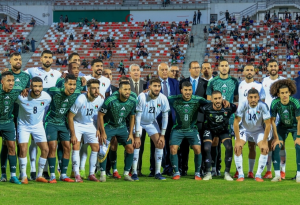
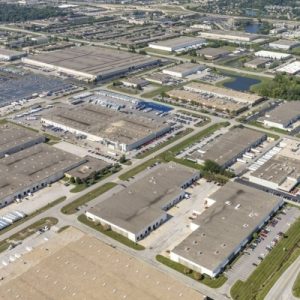
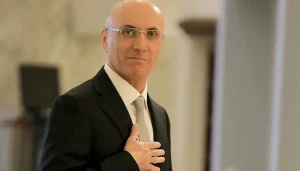

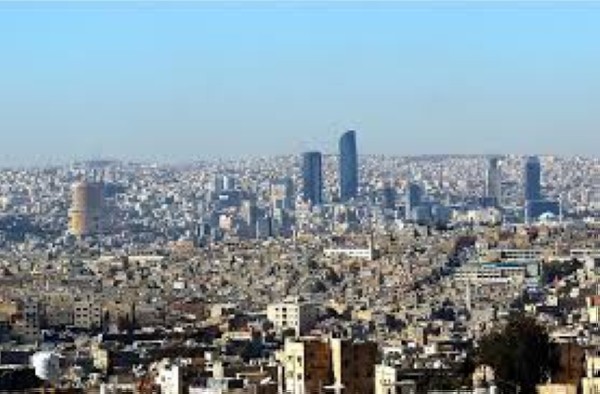

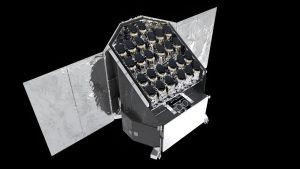


Recommended for you
Talib Al-Rifai Chronicles Kuwaiti Art Heritage in "Doukhi.. Tasaseem Al-Saba"
Exhibition City Completes About 80% of Preparations for the Damascus International Fair Launch
Unified Admission Applications Start Tuesday with 640 Students to be Accepted in Medicine
Egypt Post: We Have Over 10 Million Customers in Savings Accounts and Offer Daily, Monthly, and Annual Returns
His Highness Sheikh Isa bin Salman bin Hamad Al Khalifa Receives the United States Ambassador to the Kingdom of Bahrain
Al-Jaghbeer: The Industrial Sector Leads Economic Growth